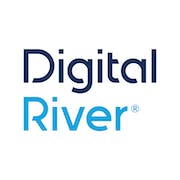Financial fraud is an ever-evolving, complex problem that poses a significant threat to today's businesses. Organizations that fail to implement adequate fraud detection measures risk serious financial losses, damage to their reputation, and legal repercussions. However, with the right fraud detection software, businesses can stay ahead of the game and safeguard their finances against potential fraud. The market for financial fraud detection software can be overwhelming, with countless vendors offering various solutions that promise to detect fraudulent activity. It can be challenging to sift through the endless options and establish which software is the right fit for your business needs. This guide is here to help you make an informed decision, providing you with everything you need to know to choose the right financial fraud detection software for your organization.
What is Financial Fraud Detection Software
Financial Fraud Detection Software is a highly specialized tool that helps businesses prevent and detect financial crimes such as money laundering, identity theft, and embezzlement. This software is designed to monitor financial transactions and identify any anomalies that may indicate fraudulent activity. With the rise of cybercrime in recent years, the importance of Financial Fraud Detection Software cannot be overstated. Here are a few common use cases for Financial Fraud Detection Software: 1. Fraudulent transaction detection: By analyzing transaction patterns and identifying suspicious behavior, the software can proactively stop fraudulent transactions. 2. Account takeover prevention: This software can detect if somebody tries to access an account without authorization, and flag the activity for review. 3. Know Your Customer (KYC): Before onboarding a client or customer, Financial Fraud Detection Software verifies identities, flags any inconsistencies, and performs background checks to ensure compliance with anti-money laundering regulations. 4. Compliance: The software helps companies stay in compliance with financial regulation by monitoring transactions and identifying potential violations. 5. Risk management: By monitoring financial activity, the software can detect emerging threats, mitigate risks, and prevent financial losses. Many industries utilize Financial Fraud Detection Software, including but not limited to: 1. Financial Services: Banks, investment firms, and other financial institutions use this software extensively to prevent financial crimes and regulatory compliance. 2. Healthcare: The software is often used in the healthcare industry to prevent medical fraud. 3. Online retail: E-commerce websites use this software to prevent fraudulent transactions during the checkout process. In conclusion, Financial Fraud Detection Software plays a vital role in protecting businesses from financial crime, especially in an era where cybercrime is on the rise. The software helps companies stay compliant with financial regulations, mitigate risks, and prevent financial losses. Its use is prevalent in various industries, including financial services, healthcare, and online retail.
Benefits of Financial Fraud Detection Software
Financial fraud can pose a significant threat to businesses, resulting in reputational and financial damages. In order to mitigate this risk, businesses must implement robust fraud detection measures that can help identify and prevent fraudulent activity. This is where financial fraud detection software comes in, providing a powerful tool to help businesses fight against fraud. Here are some of the main benefits of implementing financial fraud detection software: - Improved detection: Financial fraud detection software uses advanced algorithms and machine learning techniques to analyze large volumes of data in real-time, helping businesses to identify fraud more quickly and accurately than traditional methods. - Enhanced security: Fraud detection software can help businesses protect themselves from a wide range of fraud types, including transaction fraud, account takeover, and identity theft, among others. - Cost savings: By detecting and preventing fraud more efficiently, businesses can save significant amounts of money that would otherwise be lost to fraud. This can include savings from both preventing fraudulent transactions and reducing the cost of investigating and resolving fraud incidents. - Compliance: Many industries are subject to regulations requiring them to implement fraud detection measures. Financial fraud detection software can help businesses meet these requirements and ensure they remain compliant with relevant regulations. - Customer trust: Fraud can have a significant impact on customer trust and confidence in a business. Implementing financial fraud detection software can help demonstrate to customers that a business is taking fraud seriously and taking active steps to protect their data and finances. Overall, financial fraud detection software is a crucial tool for businesses looking to protect themselves against the serious risks posed by fraud. By improving fraud detection, enhancing security, saving costs, ensuring compliance, and building customer trust, businesses can benefit in many ways from implementing robust fraud detection measures.
Features of Financial Fraud Detection Software
Financial fraud is a growing concern for businesses of all sizes. To mitigate this risk, many companies are turning to financial fraud detection software. These programs offer a range of features that can help prevent fraudulent activity, detect it when it occurs, and streamline the management of financial data. Here are 10 common features of financial fraud detection software that you should know about: 1. Behavioral Analytics: Analyzing past transactions and user behavior to detect patterns of fraudulent activity. 2. Machine Learning: Using complex algorithms to identify anomalies and suspicious activity in financial data. 3. Access Controls: Restricting user access to different levels of financial information to prevent unauthorized access and tampering. 4. Rule-Based Alerts: Setting up customizable alerts triggered by specific conditions or transactions that match specific patterns of fraudulent activity. 5. Real-Time Monitoring: Continuous monitoring of transactions and activity in real-time to identify potential fraud as soon as possible. 6. Data Visualization: Using graphs and charts to make it easier to identify patterns in financial data and spot anomalies. 7. Compliance Management: Ensuring adherence to legal and regulatory requirements by automating the reporting and tracking of financial information. 8. Automated Case Management: Streamlining the investigation and resolution of fraud cases by automating workflows and providing a centralized platform for collaboration. 9. Multi-Factor Authentication: Adding an extra layer of security to user authentication by requiring multiple proofs of identity. 10. Audit Trails: Keeping a record of all financial transactions and activities, making it easier to identify and track suspicious behavior. These features, among others, make financial fraud detection software a valuable tool in protecting businesses from financial fraud. With the ability to identify patterns, detect anomalies, restrict access to data, and automate workflows, these programs provide a comprehensive solution to addressing the risks posed by financial fraud. By adopting financial fraud detection software, businesses are taking an important step towards safeguarding their financial stability and ensuring a reliable and secure financial future.
Considerations of Financial Fraud Detection Software
In today's digital age, financial fraud is a serious threat to businesses of all sizes. Recent studies show that businesses lose billions of dollars globally to fraud every year. As a result, businesses need to be proactive in protecting themselves against financial fraud. One of the most effective ways to do this is by investing in Financial Fraud Detection Software. Here are some factors businesses should consider when purchasing such software: 1. Accuracy: It is essential to consider the accuracy of the software as it can negatively impact a business's bottom line if the software produces false positives or misses actual fraud attempts. Therefore, it is important to choose software that uses advanced algorithms with high accuracy levels. 2. Integration: It is crucial to choose software that can be easily integrated with the business's existing systems to avoid disruption in operations. Software with open APIs can seamlessly integrate with other systems, reducing the need for custom coding. 3. Customization: Each business is unique, and the software's ability to be customized to meet the specific needs of an organization is a critical factor to consider when making a purchase. Customization can ensure that the software aligns with the business's specific requirements, reducing the risk of false alarms. 4. Ease of use: The software's ease of use is crucial in ensuring smooth operations and day-to-day productivity. It should have an intuitive interface that is easy to navigate and generate reports quickly. 5. Scalability: As businesses grow, their needs change as well. The software should be scalable to accommodate such changes to avoid the need for regular software purchases and installations. 6. Cost: Cost is an important factor to consider when purchasing Financial Fraud Detection Software. It is essential to choose software that offers value for money while meeting the necessary requirements and providing adequate protection against fraud. 7. Support: Lastly, it is essential to consider the software vendor's support services. Good support is crucial to providing quick solutions to any technical issues that may arise, leading to minimal disruption to business operations. In conclusion, businesses need to choose Financial Fraud Detection Software carefully to protect themselves against the increasing threat of fraud. The software chosen should be accurate, easily integrated and customized, scalable, easy to use, cost-effective, and have excellent vendor support. By considering these factors, businesses can make informed choices and invest in software that meets their specific needs.
Software Trends for Financial Fraud Detection Software
As financial institutions continually evolve and upgrade their systems, fraudsters continue to find ways to break through security measures, making financial fraud detection software crucial. Based on industry leader insights and fraud trends, it is predicted that the biggest financial fraud detection software trends that will dominate in 2023 and beyond include the following: 1. Advanced Artificial Intelligence and Machine Learning - AI and machine learning will be critical components of financial fraud detection software, enabling the identification of fraudulent patterns quickly and accurately. 2. Behavioral Biometrics - This technology helps identify specific patterns of behavior based on keystrokes, touch pressures, and mouse movements, which can determine the difference between a legitimate user and a fake user. 3. Anti-Money Laundering - Financial institutions will increasingly rely on AML solutions to help detect and prevent money laundering through the monitoring of suspicious transactions in real-time. 4. Automatic Fraud Alert Systems - Automated alert systems will become more advanced and proactive, notifying users of potential fraud incidents immediately, to take immediate preventive action. 5. Real-time Transaction Monitoring - Real-time monitoring will become the new standard, ensuring that all transactions are monitored, flagged, and, if needed, stopped quickly. 6. Communication Security - Communication security will become a more significant player, as fraudsters look to exploit communication channels between banks and customers. 7. Biometric Authentication - The use of biometric authentication, such as facial recognition, will become common in financial institutions, replacing the more traditional passwords and two-factor authentication. 8. Multi-layer Authentication - An additional layer of authentication will be added to the already existing security measures, further secure financial transactions. 9. Fraud Risk Scoring - Fraud risk scoring tools will become more commonplace in 2023, enabling financial institutions to identify those at high risk of fraudulent activity. 10. Behavioral Analysis - Financial institutions will increasingly rely on user behavior analytics to detect vulnerabilities or potential attacks, allowing for proactive measures to fraud prevention. Keeping up with all these trends will be crucial to prevent financial fraud in the future.









